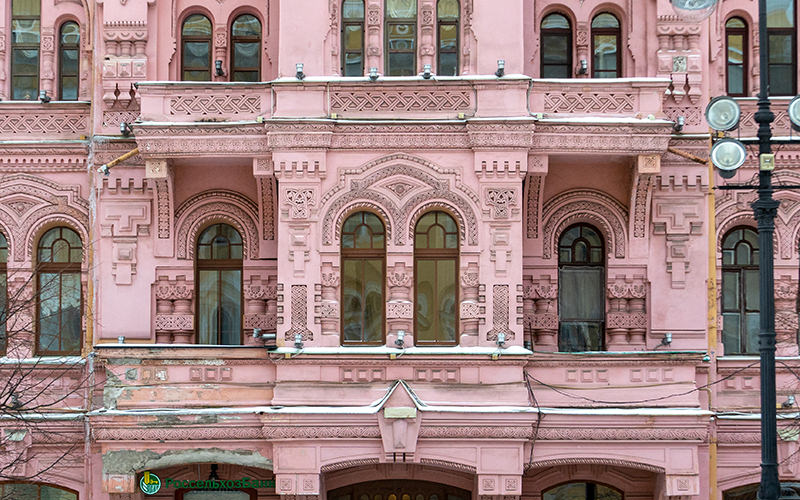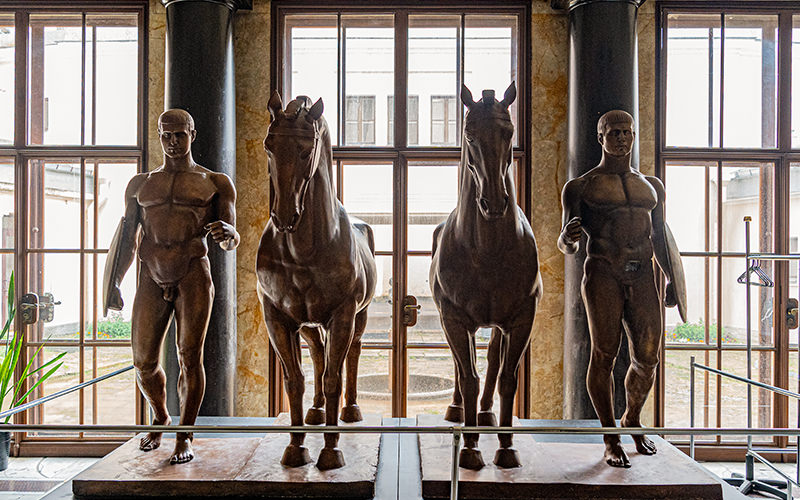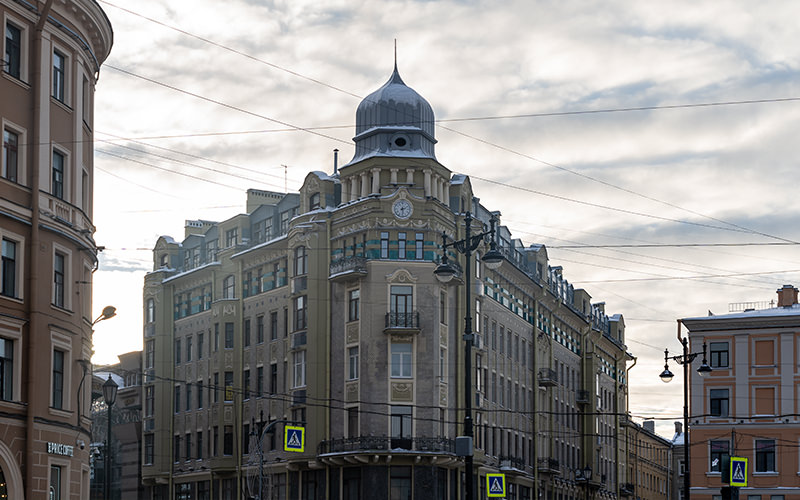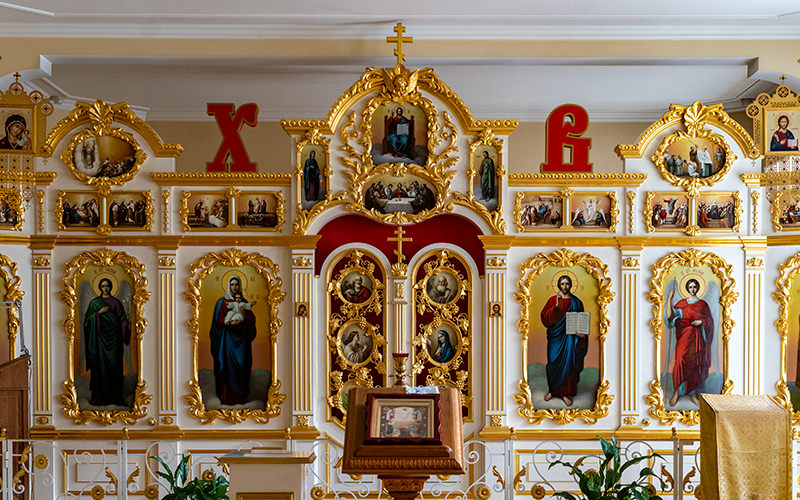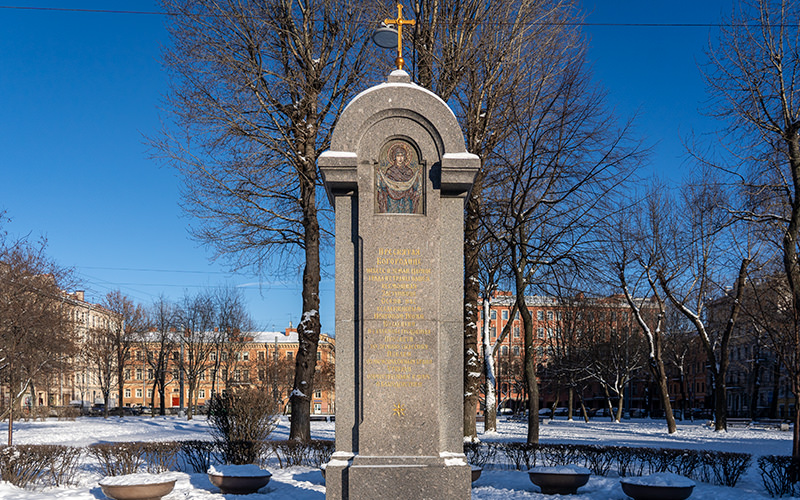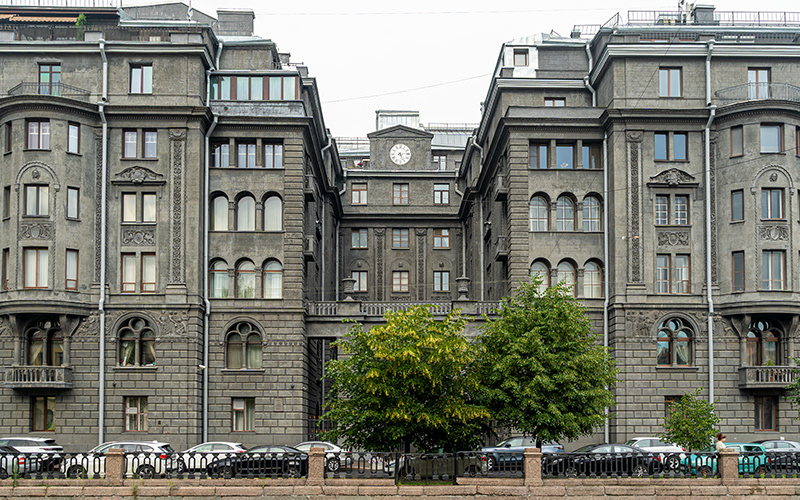One day, while searching for interesting architectural landmarks of Saint Petersburg on online maps, I stumbled upon a building marked as the “Fairy Tale House.” In the city panoramas, the structure looked like one of many Soviet-era buildings, and I became curious — where did this seemingly ordinary house get such an unusual name? Let’s find out.
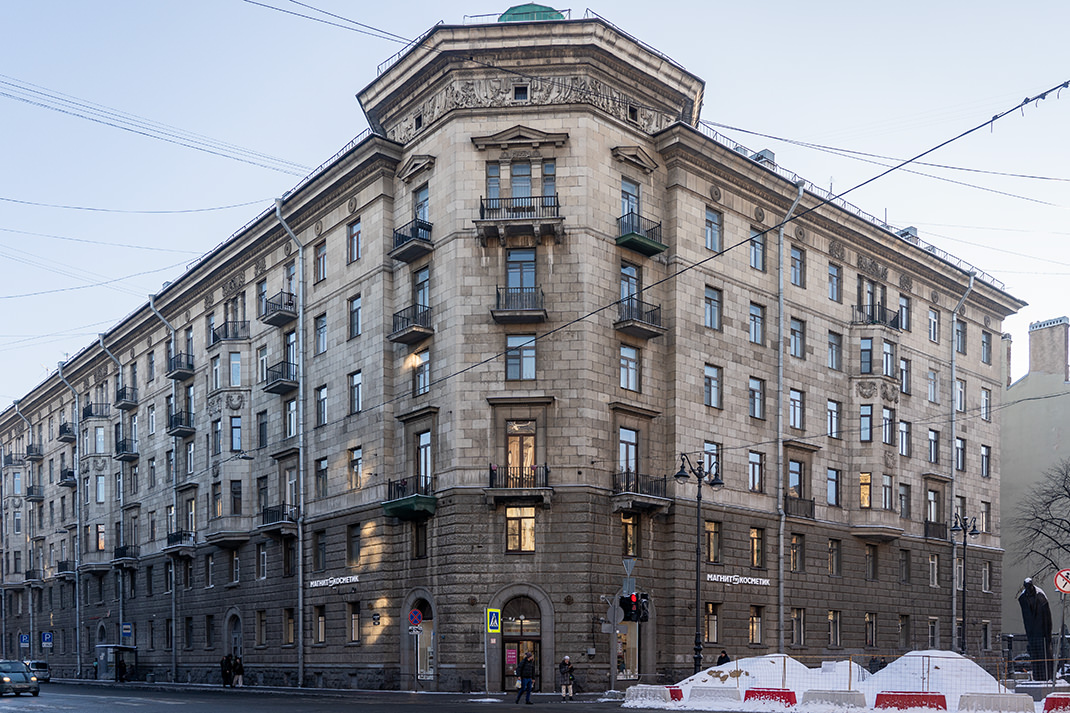
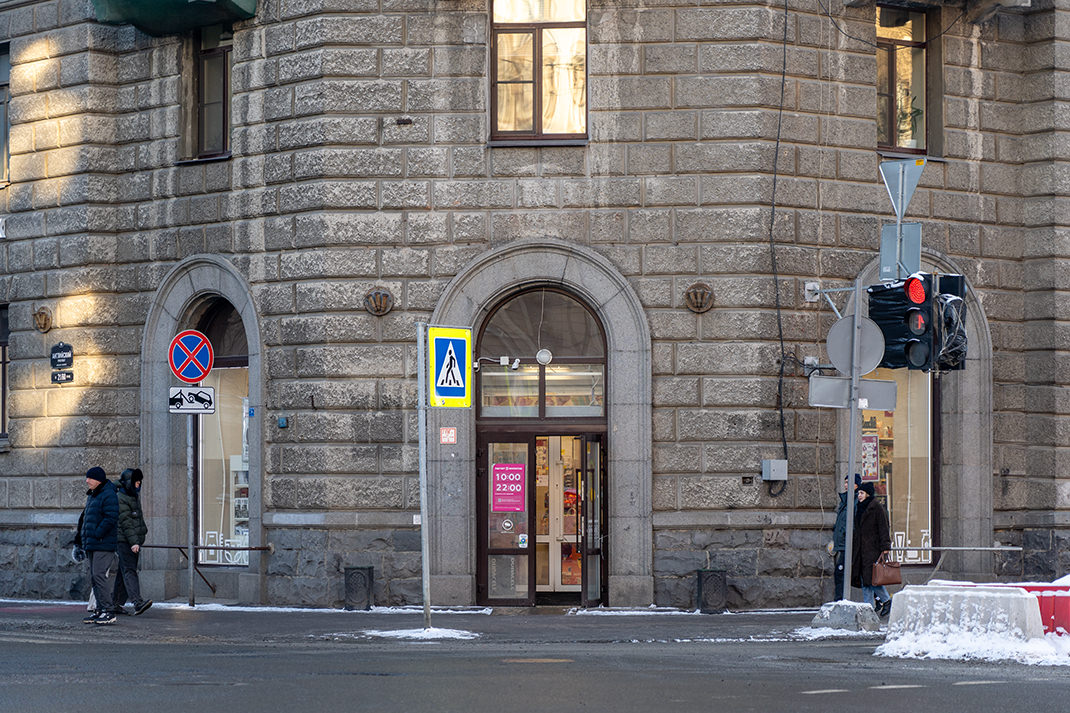
“Fairy Tale House”: 1910–1942
In the past, a three-story residential building stood on this site. The house is known for having once hosted Pyotr Ilyich Tchaikovsky. The composer stayed with his cousin, who was renting an apartment in the building, in 1881–1882.
In the early 20th century, the plot along with the building was purchased by gold miner P. I. Koltsov. In 1909–1910, architect A. A. Bernardazzi constructed a new revenue house here. Although Bernardazzi was an architect with the Ministry of National Education, only a few buildings in Saint Petersburg were designed by him. According to an architectural directory, in addition to Koltsov’s revenue house, Bernardazzi also designed one more residential building and the Gymnasium of Heir Tsarevich Alexei Nikolaevich.
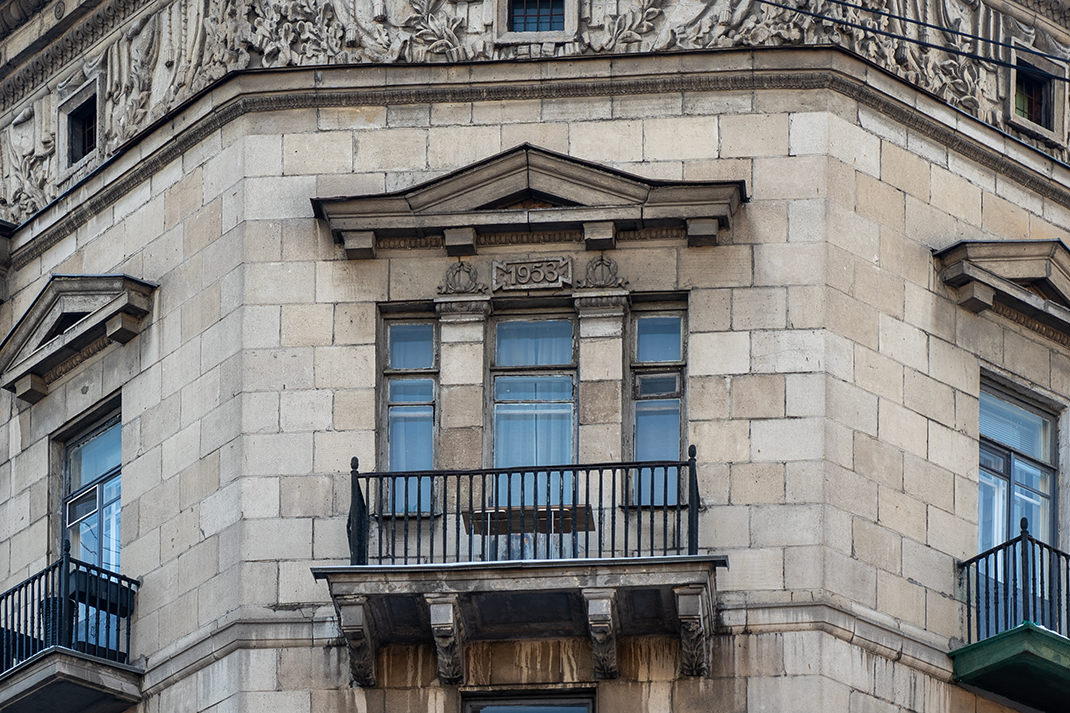
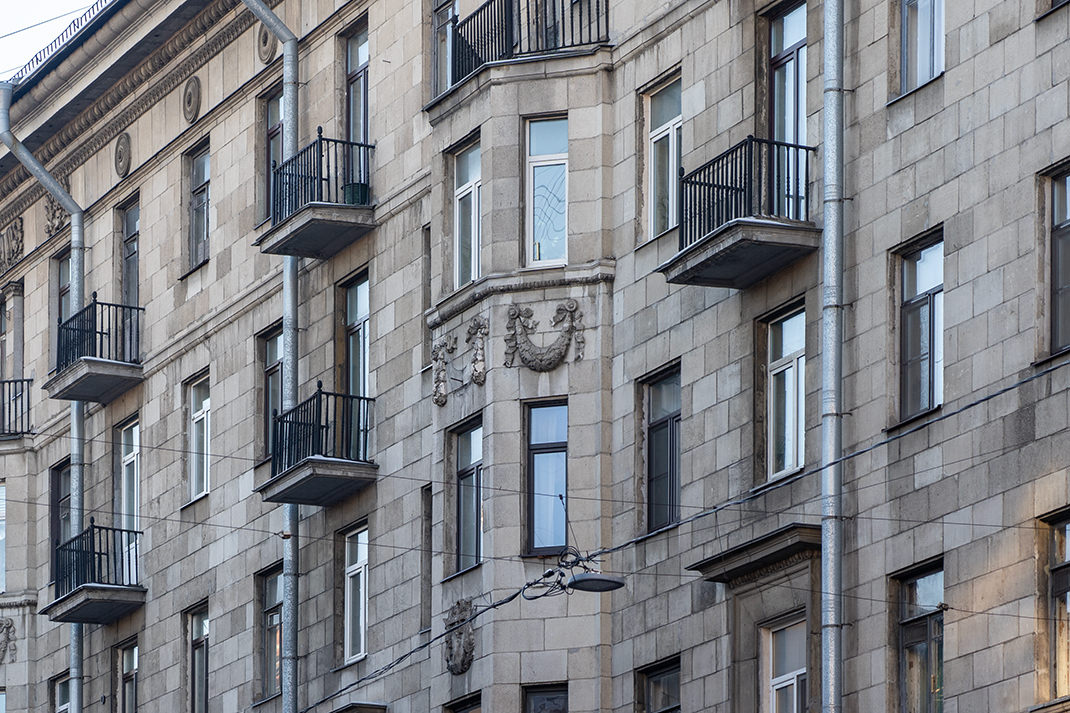
Koltsov’s former income house was a striking example of Art Nouveau. In old photographs, the building truly resembled a fairytale castle, adorned with an abundance of architectural details. Its façades were made especially impressive by a massive corner tower and majolica panels featuring designs based on sketches by Mikhail Vrubel.
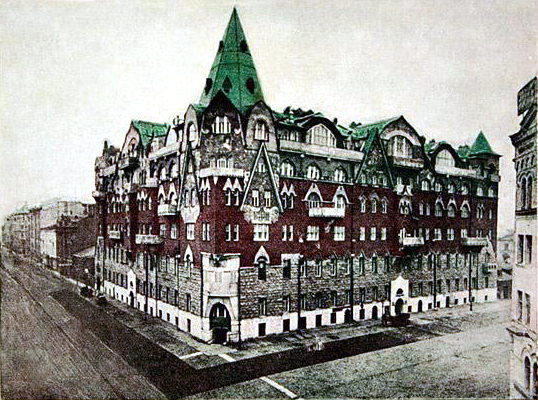
If the earlier building is associated with the name of composer Tchaikovsky, then in my opinion, the most famous resident of the “Fairy Tale House” was ballerina Anna Pavlova, who rented an apartment here until 1913. At different times, other artists and cultural figures also lived in the building. The structure’s unusual appearance, which even attracted visitors from other cities, likely appealed to creative individuals.
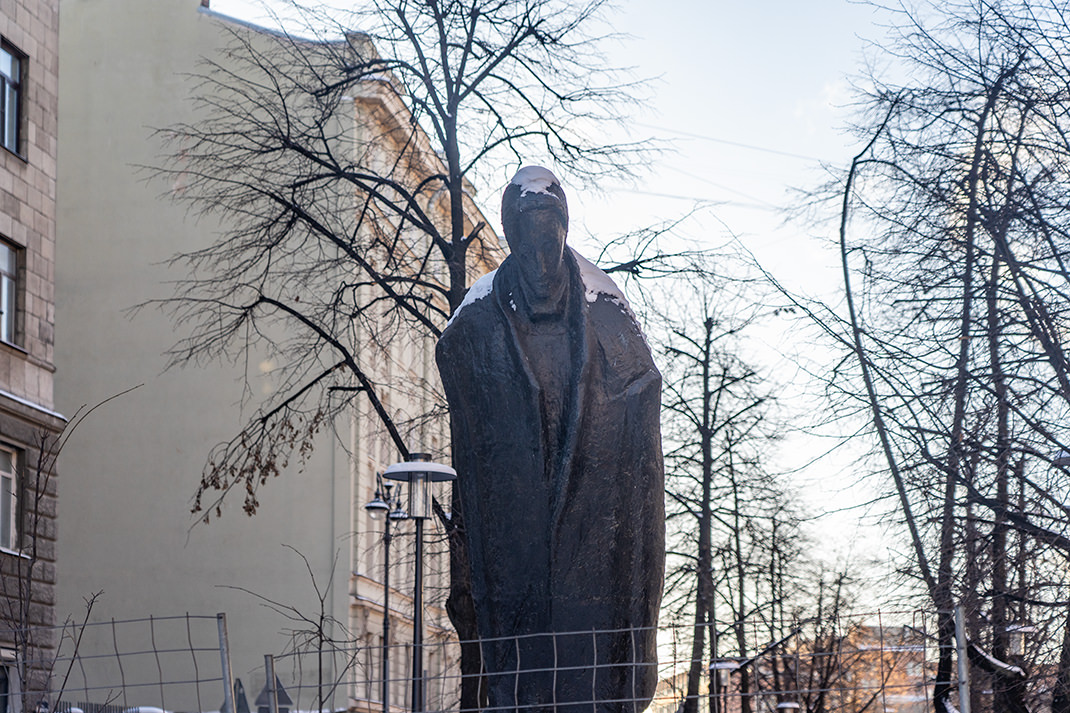
As you might have noticed from the photos, the building currently standing on this site has nothing in common with the original. The unique “Fairy Tale House” was severely damaged by fire in the winter of 1942 — the façade collapsed, and many apartments were completely destroyed by flames. Firefighters were only able to save the courtyard sections of the building.
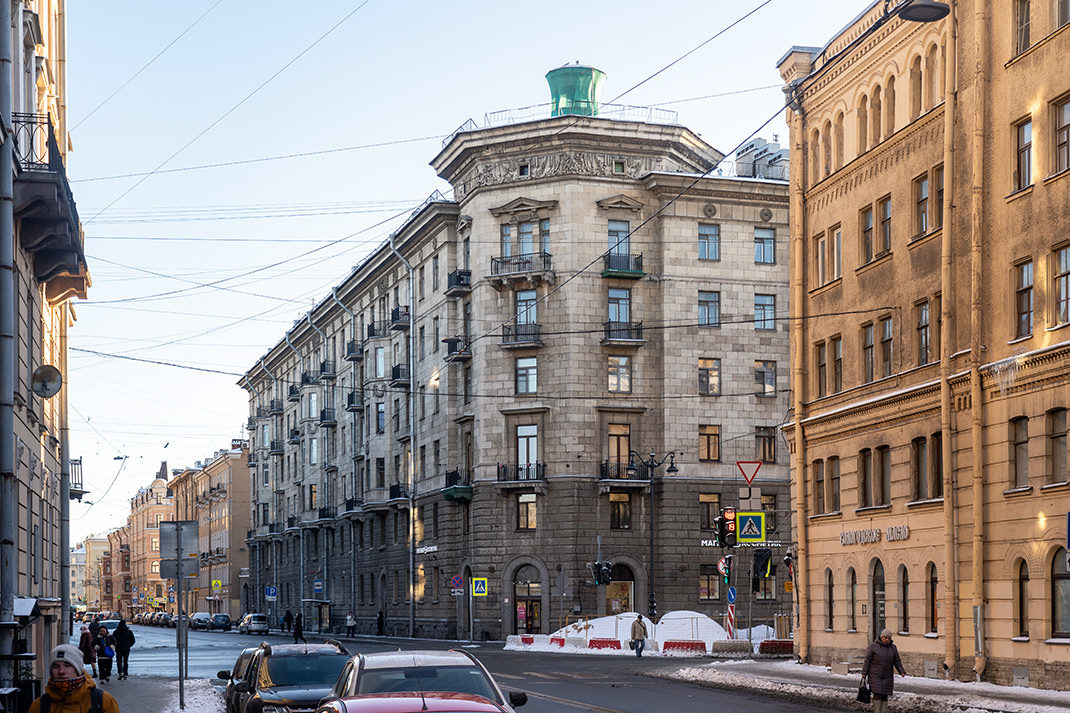
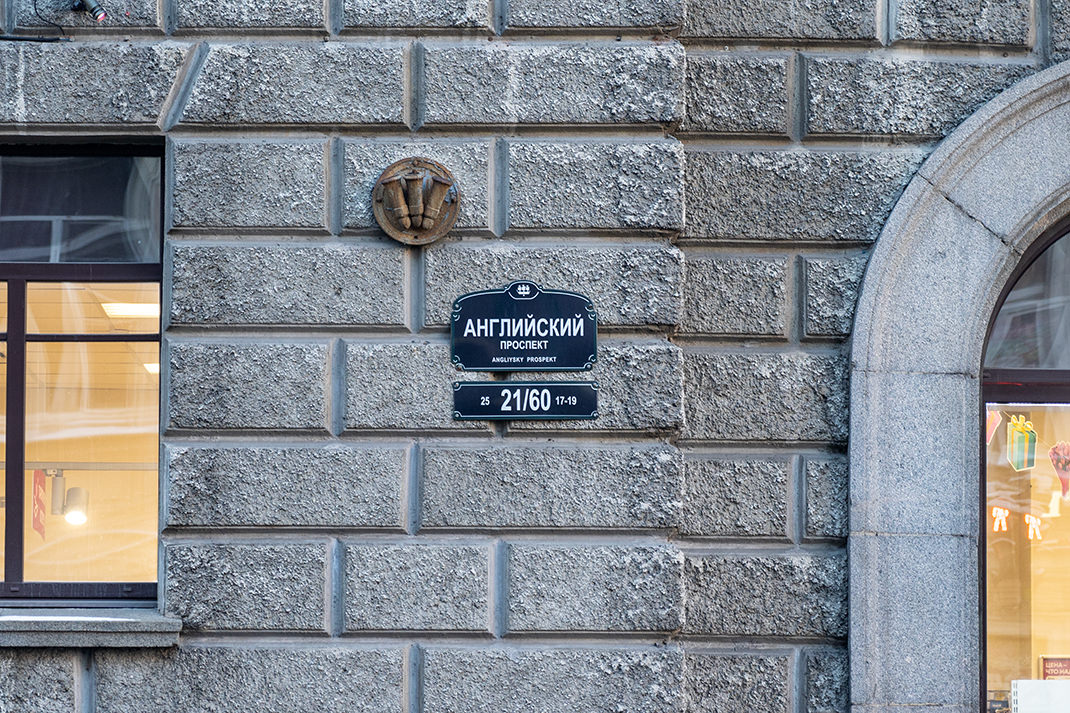
The house was not restored. Instead, a new residential building was constructed on the site — one that bears no resemblance to its extraordinary predecessor. The current structure was completed in 1954. Yet the memory of the remarkable “Fairy Tale House” remained so strong that this landmark is still marked on online maps today, 83 years after its destruction.
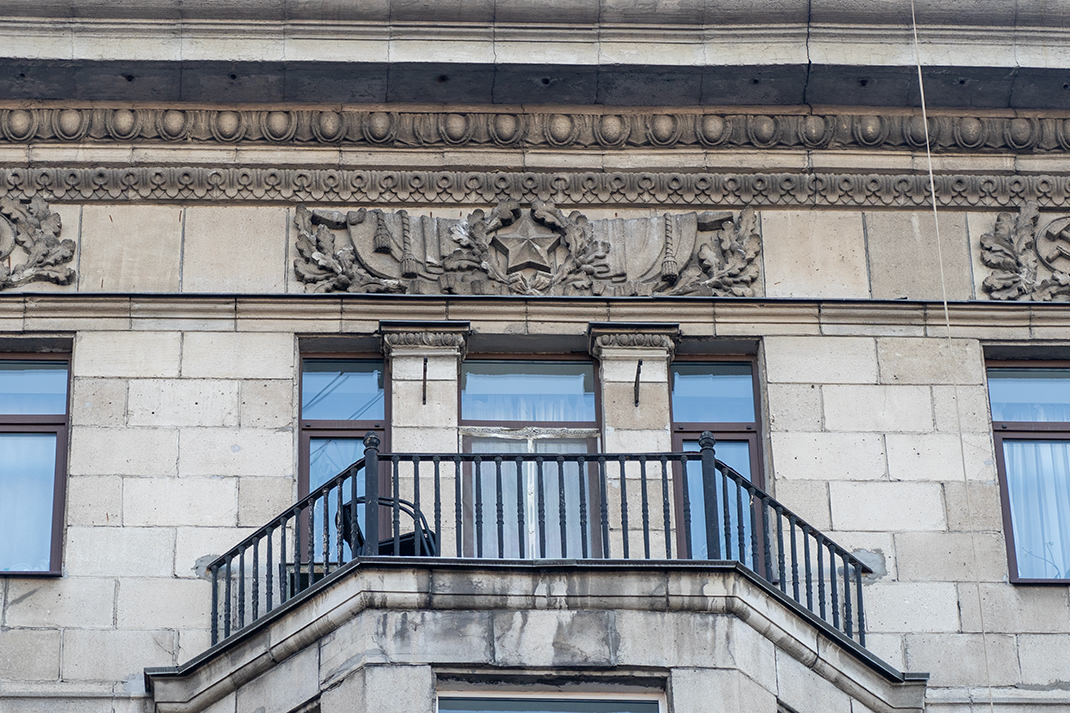
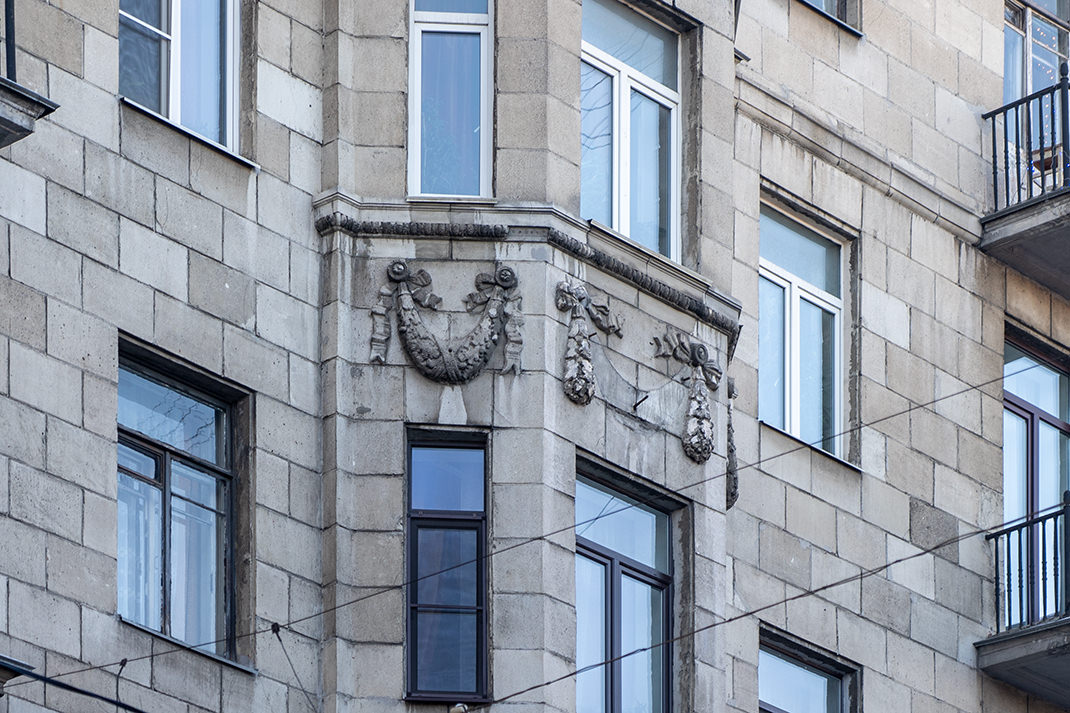
How to Get There by Metro
The address of the building that now stands in place of the “Fairy Tale House” is 21 English Avenue / 60 Dekabristov Street. It’s about a 30-minute walk from the transfer hub “Sennaya Ploshchad” – “Spasskaya” – “Sadovaya.” In colder seasons, it’s more convenient to take public transport. In summer, you might enjoy walking from the metro, passing by the Mariinsky Theatre and Yusupov Palace along the way.
Have a nice trip!


